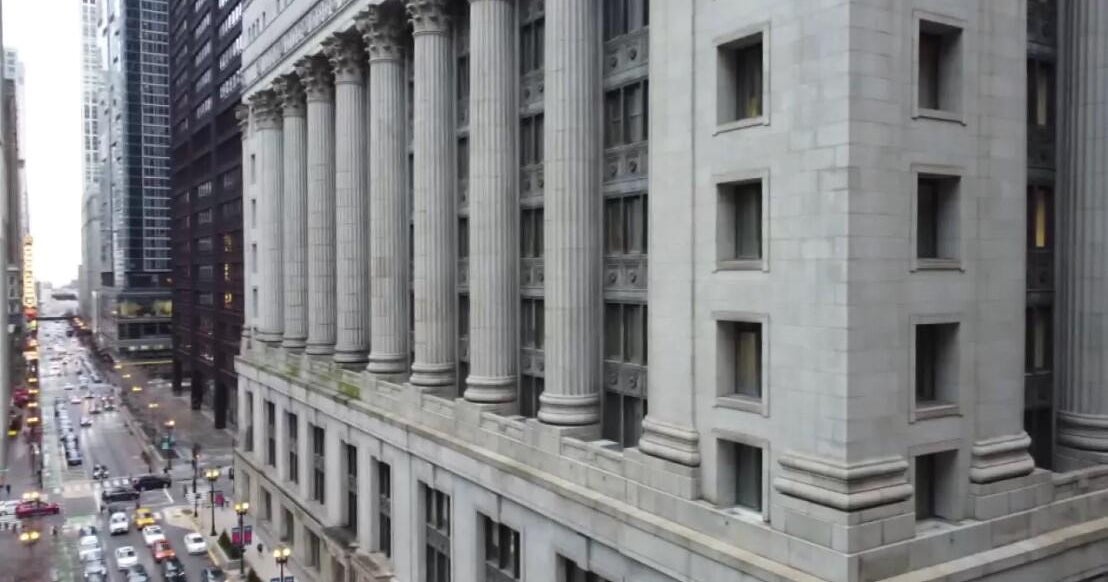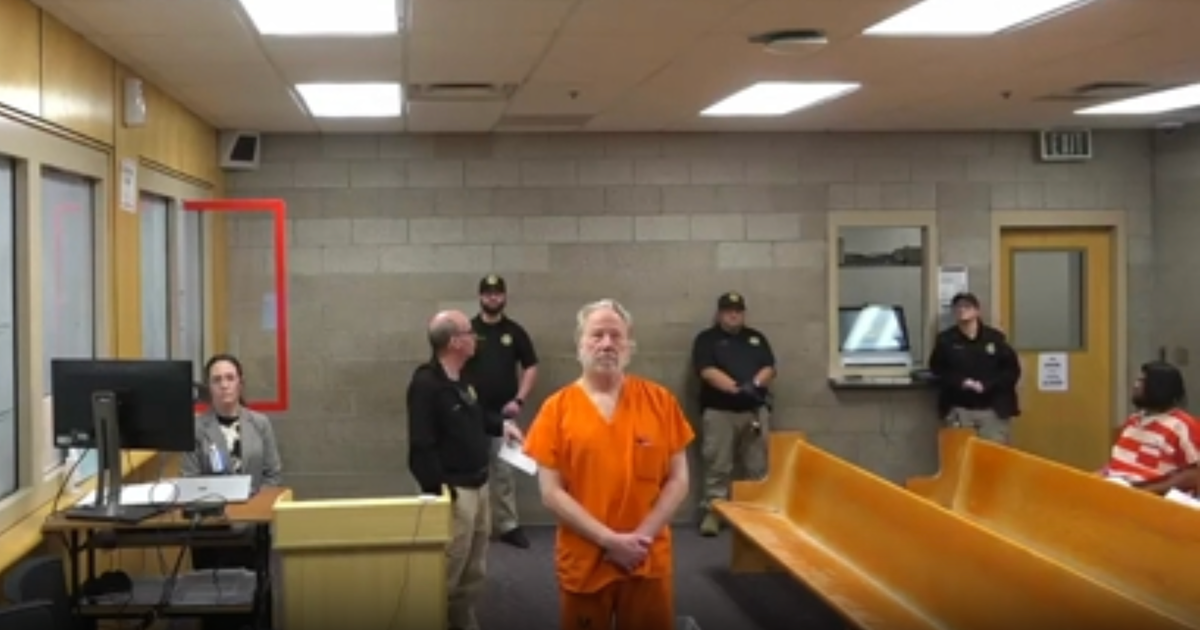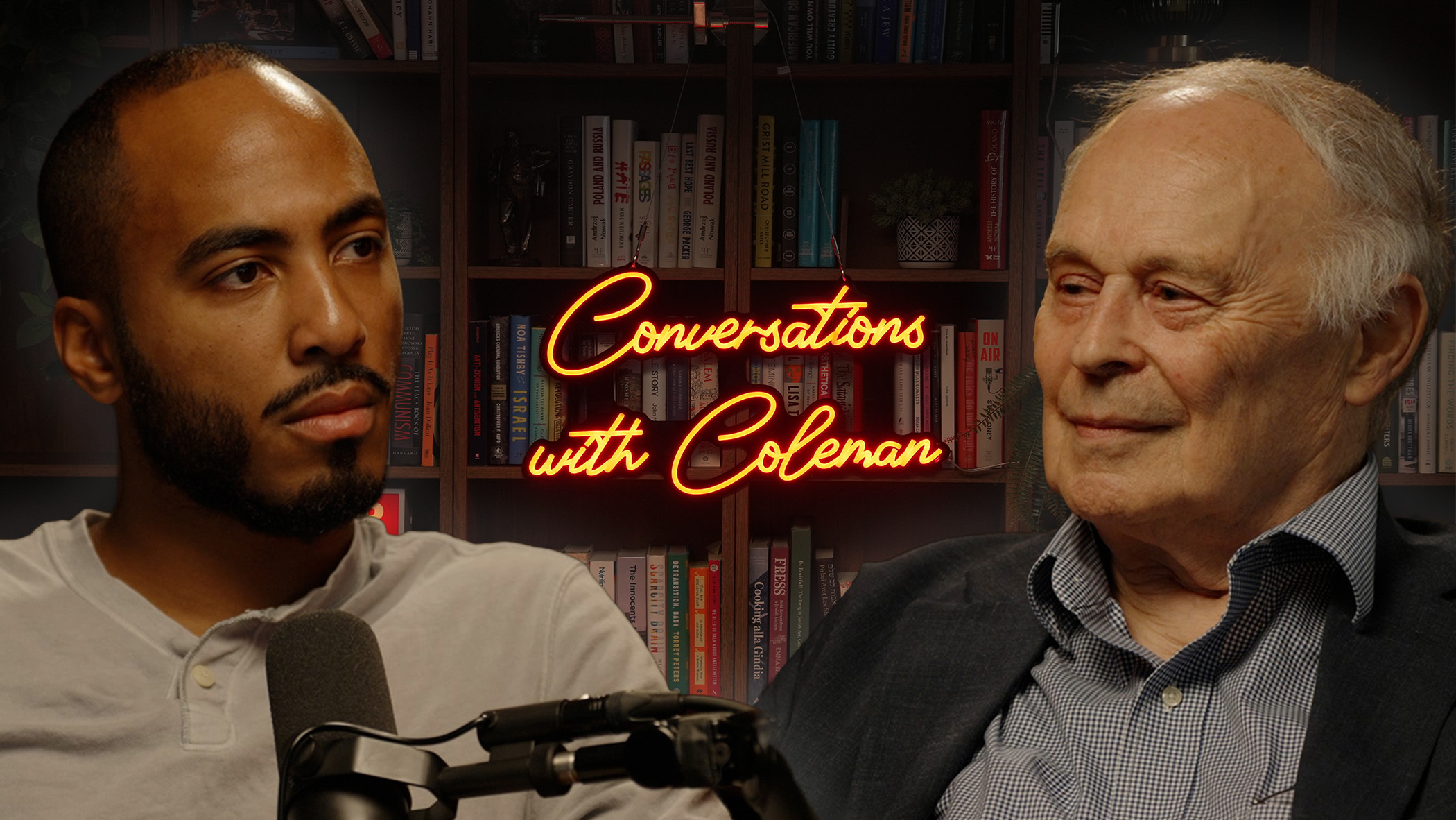Nicolas Cage on "Looking Glass" and why he loves working on indie films
Nicolas Cage is known for blockbuster hits like "National Treasure" franchise, but these days, you're more likely to find him on the set of a small-budget independent film, and that's how the actor likes it. While the "National Treasure" franchise grossed nearly a billion dollars at the box office, Cage says he prefers artistic freedom over big paychecks.
This year he stars in a collection of indie films, including Tim Hunter's thriller, "Looking Glass," alongside Robin Tunney.
Cage plays Ray, a motel owner who discovers that a two-way mirror in his most popular room provides him with a private glimpse into the intimate – and dangerous – encounters happening on the other side of the glass. Cage spoke with CBS News about the film, the artistic advantages of independent projects, and chasing the "Super 8 feeling."
Q: What draws you to working on independent films?
A: There's more freedom to be able to experiment and realize my dreams in terms of my performance. There are fewer cooks in the kitchen -- less money on the line. When you're on a movie like "Looking Glass," Tim Hunter has full authority to make the movie he wants to make.
I have a lot more freedom to experiment with my performance and try to learn something. I see myself as a student of film acting. I'm always attempting new styles of performance and you can't always do that when you're on a big-budget movie.
Q: You've talked about the "Super 8 feeling" before. Can you describe that?
A: I made Super 8 movies with my brother when I was a kid growing up. The "Super 8 feeling" is really the best feeling you can have in your professional life – working on a 35mm movie or what have you – because that feeling is when you're only making the movie because you love the movie.
You have the joyful feeling of youth like when you're a kid and you're making a movie because you love movies. You're not making a movie because you want an Academy Award, or you want money, or because you want to be famous. You're simply making the movie because you love it.
Q: What drew you to "Looking Glass?"
A: I thought it was a great bookend to some of the movies I had made earlier in the year. After much larger performances in "Mom and Dad" and "Mandy," I wanted to remind myself and the audience that I could be much more internal and much quieter in terms of performance style. Plus, I thought the subject matter was interesting. Voyeurism is something that I think photographs very well. There's something stimulating about being in an audience watching a movie about someone watching somebody else. I wanted the character to be enigmatic. You're not entirely sure if he is or isn't a creep. Is he falling down the rabbit hole or is he trying to do something right? I liked that enigmatic quality.
Q: You've said that you often draw on memories and experience to inform how you play a character. Did you find yourself doing that with Ray?
A: I often go back on memories of youth and use anything to help the character feel more organic. With this character I wanted to try to get across that his voyeurism – through this looking glass – became a way to break his depression. He knew it was not healthy and it was wrong, but it gave him something to look forward to.
I also wanted to give the idea that he was starting to get high on his power. He was becoming a megalomaniac in his own mind. He had a god-like power in which he could stand outside and stare at his hotel and know they were all his guests and he could spy on them whenever he wanted to. It gave him a window into having an omnipresent power, and I wanted to show that.
Q: You starred in multiple thrillers this year – including "Mandy" and "Mom and Dad" – but you play a very different character in each one. What was it like working on films in a similar genre but contributing to them in strikingly dissimilar manners?
A: It was educational. I have to keep it eclectic because if I keep repeating myself then I get very bored and then I'm probably going to bore the audience. That's the one great sin in performance: You can never be boring. You have to ultimately entertain the audience on some level, and for me, to be able to do that I have to find something in [the film] that excites me. ["Looking Glass"] gave me the chance to exercise a different group of muscles and show folks I could do a more naturalistic style. It's all by design.
"Looking Glass" is in select theaters, VOD and digital HD.





